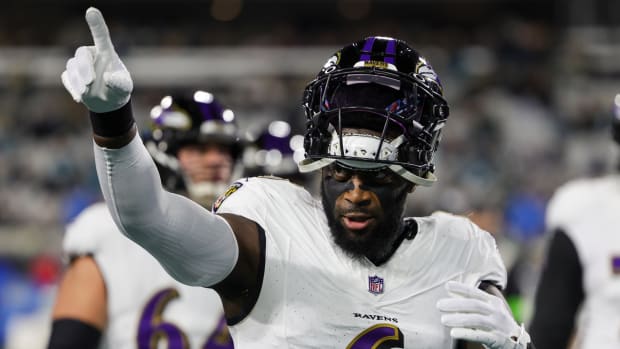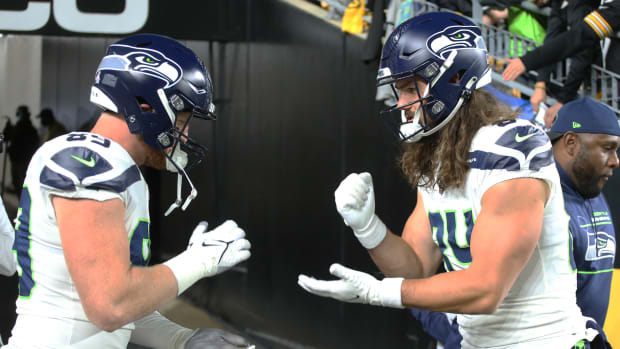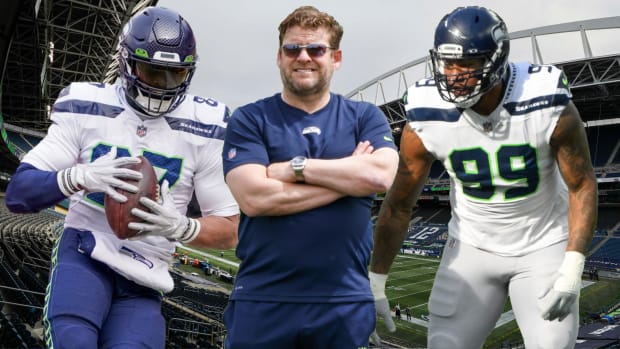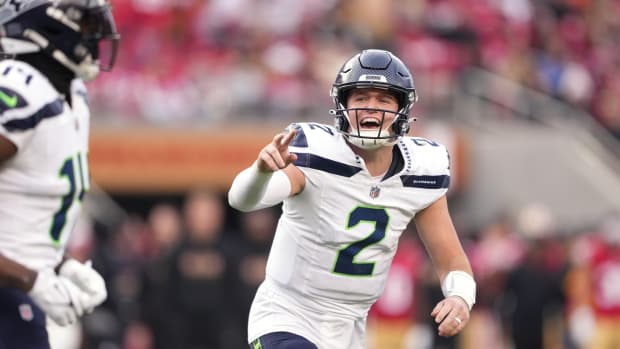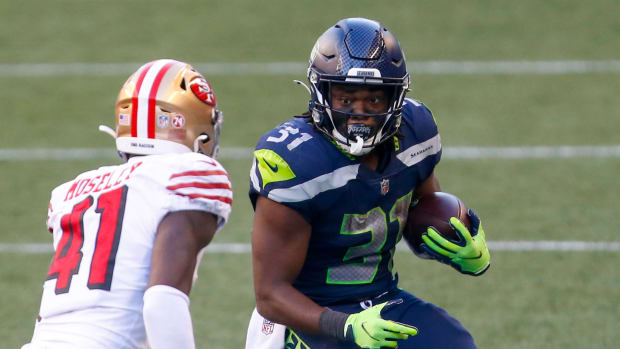Seahawks GM John Schneider’s Brilliance on Full Display in 2019
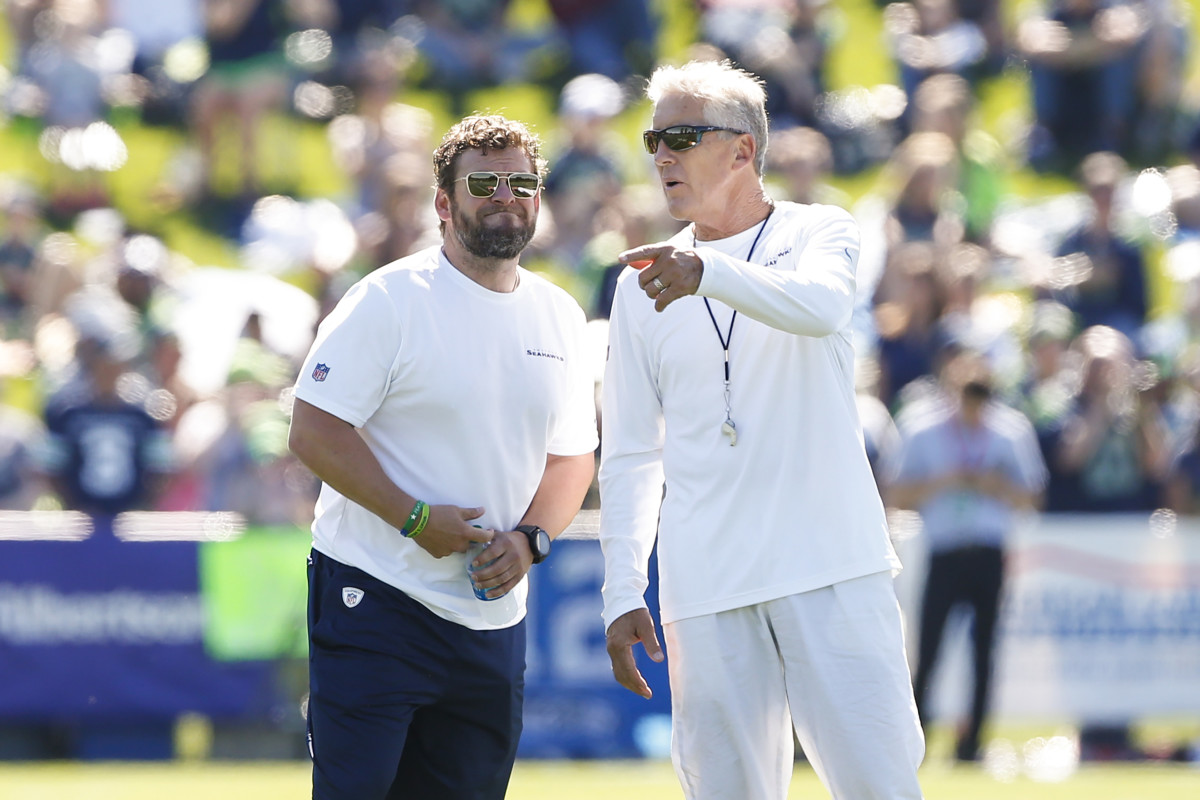
As the primary architect of six playoff teams in a seven-season span, Seahawks general manager John Schneider has already earned a reputation as one of the savviest front office gurus in the NFL.
But for as much success as Schneider has had since his arrival along with coach Pete Carroll in 2010, including leading the franchise to two Super Bowls and a surprising playoff berth last season, this year may be his finest work to date transforming Seattle into a legitimate title contender in a loaded NFC.
Interestingly, the entire process started in March with the Seahawks losing several starters in free agency. First, starting slot cornerback Justin Coleman became the highest-paid player ever at his position, striking a multi-year deal with the Lions. Then, as expected, disgruntled safety Earl Thomas flew the nest to join the Ravens.
Aside from re-signing guard D.J. Fluker as well as linebackers K.J. Wright and Mychal Kendricks, Seattle stayed quiet during the initial phase of free agency. The team lost a bunch of players and only signed guard Mike Iupati and kicker Jason Myers as outside free agents, racking up compensatory picks for 2020.
Then in April, Schneider traded away star defensive end Frank Clark to the Chiefs in exchange for a 2019 first-round pick and a 2020 second-round pick. The Seahawks used the additional first-round pick to trade back several times, eventually bringing in an 11-player draft class after starting with just five selections.
Once the compensatory pick deadline passed in early May, Schneider instantly became aggressive, signing defensive end Ziggy Ansah, defensive tackle Al Woods, and cornerback Jamar Taylor in a matter of days.
While Ansah has yet to prove worthy of his one-year deal and Taylor has been a serviceable veteran addition replacing Coleman at slot cornerback at best, it’s not an exaggeration to consider Woods as Schneider’s best offseason signing. The veteran defender filled in splendidly for suspended starter Jarran Reed and already has 26 tackles and three tackles for loss, giving Seattle an outstanding trio of interior defenders.
Where Schneider has really positioned himself for Executive of the Year honors, however, has been his innate ability to acquire top-tier talent for minimal cost on the trade market.
Starting immediately after the draft, Schneider sent a seventh-round selection to the Patriots for seldom-used tight end Jacob Hollister, who opened the season on Seattle's practice squad.
But since losing starter Will Dissly to a season-ending Achilles injury, all Hollister has done is catch 17 passes and three touchdowns during the Seahawks past four games, quickly developing a rapport with quarterback Russell Wilson.
Then in an unexpected game-changing move, Schneider dealt for defensive end Jadeveon Clowney on August 31 for pennies on the dollar. He shipped a third-round pick and reserve linebackers Jacob Martin and Barkevious Mingo to the Texans to land the former No. 1 overall pick.
Nearly three months later, the deal to bring Clowney to Seattle looks like an even bigger heist than originally perceived. Mingo has played eight defensive snaps all season and hasn’t recorded any statistics, while Martin has amassed just five tackles through 10 games with Houston.
Meanwhile, after a slow start, Clowney has been utterly dominant as of late, recording 2.0 sacks, nine quarterback hits, and a fumble returned for a touchdown in Seattle’s last three games.
Though it’s far too early to deem either move a success, Schneider also acquired safety Quandre Diggs for a fifth-round pick and claimed receiver Josh Gordon off waivers. If their debuts last Monday are any indication, both players should be able to help the Seahawks significantly down the stretch.
If you're still keeping score, Schneider dealt Clark, a third-round pick, a fifth-round pick, and a seventh-round pick in exchange for Clowney, Diggs, Hollister, Gordon, a first-round pick, and a future second-round pick. Schneider must have some dirt on other general managers because he should probably be arrested for theft.
Rolling the dice could still backfire in the long-term, as Clowney will become a free agent in March and the Seahawks agreed not to franchise tag him as part of the final trade agreement with the Texans. Though Schneider will likely be willing to open the checkbook to re-sign him, he still could wind up being a one-year rental if he hits the market.
But even if that happens, Seattle will get at least three compensatory draft picks next April and Diggs remains under contract through 2021, providing stability at safety for future seasons. As for Gordon, he'll be an affordable free agent to re-sign if he performs well in his two-month audition. If not, he can walk and the team won't lose anything.
All of these moves were well worth the minimal risk for Schneider, setting up the Seahawks to push for an NFC West title and yet another potential Super Bowl run in January.

